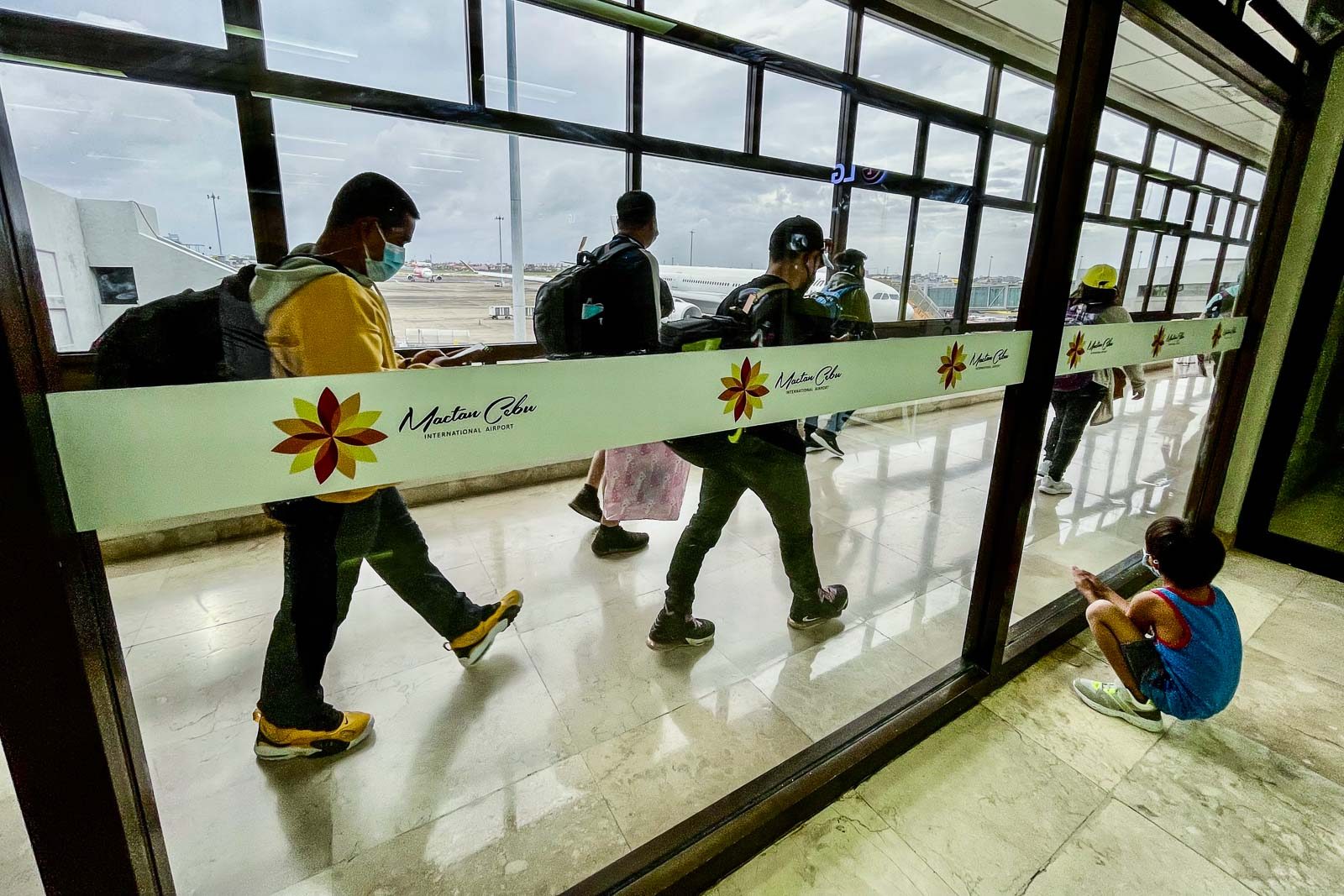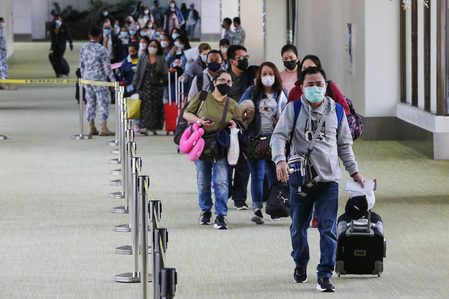SUMMARY
This is AI generated summarization, which may have errors. For context, always refer to the full article.

MANILA, Philippines – Experts have expressed support for the Philippine government’s decision to scrap mandatory quarantine policy for fully vaccinated incoming travelers beginning Tuesday, February 1.
In a text message to Rappler on Monday, January 31, infectious disease specialist Dr. Rontgene Solante said that the move was a “sound and appropriate decision to make.”
“Being fully vaccinated and boosted are less likely to get the infection, with better protection. If and when they are infected, the clearance time of the virus is faster (average 5.5 days) compared to unvaccinated (7.5 days),” Solante said.
“Shorter clearance time, less infectious and less viral load and less transmissibility,” he explained.
The same sentiment was shared by former pandemic task force adviser Dr. Tony Leachon, saying that the “new quarantine guidelines are done to align [with the] live with the virus strategy.” He gave five indicators to meet with the scrapping quarantine. These are:
- reduction of new cases;
- reduction of positivity rate, should be less than 5% (This is also the World Health Organization’s benchmark);
- healthcare capacities are achieved and enhanced;
- testing should not be abandoned to avoid super-spreader events;
- ensure that gains in response should not be lost.
Solante is part of the Philippines’ vaccine expert panel. He heads the adult infectious diseases and tropical medicine unit at San Lazaro Hospital, and is former president of the Philippine Society for Microbiology and Infectious Diseases.
Meanwhile, Leachon was booted out of the task force in 2020 due to his social media posts critical of the government’s coronavirus response.
On Thursday, January 28, Malacañang announced that it was easing border controls and was finally allowing tourists to enter the country.
Starting February 1, the Philippine government is temporarily suspending its risk classification list for countries, in favor of allowing fully vaccinated individuals to enter the country:
- February 1 – Returning fully vaccinated Filipinos, regardless of where they come from
- February 10 – Fully vaccinated foreigners from visa-free countries
Both returning Filipinos and foreigners who are fully vaccinated are no longer required to go through mandatory quarantine. They only need a negative RT-PCR test done within 48 hours before their departure from abroad.
Solante said that the “negative RT-PCR result 48 hours prior to arrival will ensure that if they are exposed prior to arrival, their exposure did not lead to them being infected.”
The new policy comes as COVID-19 cases are declining after the record-surge in infections driven by the highly contagious Omircon variant.
Asked why the Department of Health (DOH) approved of this recommendation, DOH Undersecretary Maria Rosario Vergeire said that the Philippines is already past border control measures for fully vaccinated individuals.
Vergeire explained that according to the analysis of the Philippine Genome Center, returning overseas Filipinos were detected with Omicron variant BA.1. while the predominant in most regions in the country is the sub-lineage BA.2.
She also said that returning Filipinos have a lower incidence of testing positive from COVID-19 compared to local communities. “It (Quarantine upon arrival for fully vaccinated travelers) doesn’t make sense, because the transmission here in the Philippines is already high,” Vergeire said.
Dr. Edsel Salvana, an infectious disease specialist at the University of the Philippines-Philippine General Hospital (PGH), further explained that risk that easing quarantine procedures for fully vaccinated travelers would lead to a spike in cases in the community was low, more so if it was coupled with a requirement to show a negative test result at least 48 hours before arrival.
If fully vaccinated travelers were arriving from a country with either equal or lower transmission of COVID-19 compared to the the Philippines, “quarantine doesn’t make sense because the community presents a higher risk to them (because of high community transmission) than of them transmitting it to the community,” Salvana told Rappler.
Salvana is among members of the DOH’s technical advisory group on COVID-19, which had vetted the policy shift for fully vaccinated travelers along with other epidemiologists in the government’s working group for data analytics relating to the pandemic.
Unvaccinated travelers, meanwhile, will still need to undergo testing upon arrival and observe mandatory quarantine that can range from at least four to eight days after arrival, depending on the government-determined risk classification their country of origin falls under.
The Philippines decision to ease travel restrictions for fully vaccinated individuals comes after several countries have sought to regulate travel based on the vaccination status of passengers. For instance, the United States lifted travel restrictions for fully vaccinated travelers if they can show proof of vaccination and a negative test result taken within three calendar days of travel.
Other areas like Hong Kong, which had observed some of the strictest quarantine measures, have also eased travel restrictions by cutting mandatory quarantine down to 14 days from 21, citing shorter incubation periods associated with Omicron.
Too early
For Senator Nancy Binay, the government should have not abruptly lifted quarantine requirements for fully vaccinated travelers “until a comprehensive and localized surveillance system is in place.”
“‘Di pa ba tayo natuto sa nangyari doon kay ‘Poblacion Girl’? Sa loob na nga ng facility eh nalulusutan pa, what more ‘yung talagang hinayaan na nating gumala ang mga byahero galing abroad. Kulelat na nga tayo sa pandemic response, ngayon bibitawan pa natin ang border control,” she said.
(Have we not learned from our experience with ‘Poblacion Girl?’ There have been incidence of quarantine violators inside facilities, what more if we just let travelers from abroad to roam around. We’ve been lagging in terms of pandemic response. Now, we’re relaxing our border control.)
Binay said that the relaxing border controls would “definitely contribute to the rise in new variants and subvariants – not to mention the probability of severe illnesses and deaths.”
“Minsan mapapaisip ka sa mga desisyon ng IATF kung trial and error (Sometimes, IATF decision makes you think if they’re doing trial and error). So, are we supposed to draw comfort from this? Is the lifting of restrictions supposed to slow down the high transmissibility rate of new variants or, in any way, be less threatening to COVID-19 infections?” asked Binay. – Rappler.com
Add a comment
How does this make you feel?

There are no comments yet. Add your comment to start the conversation.